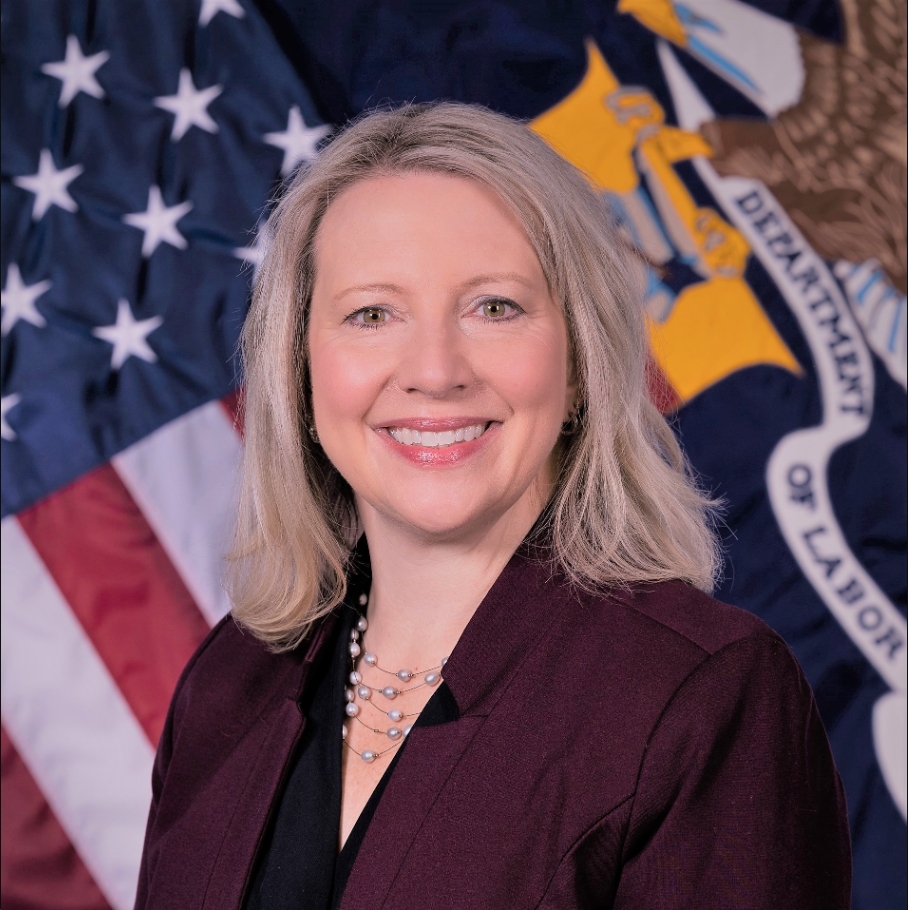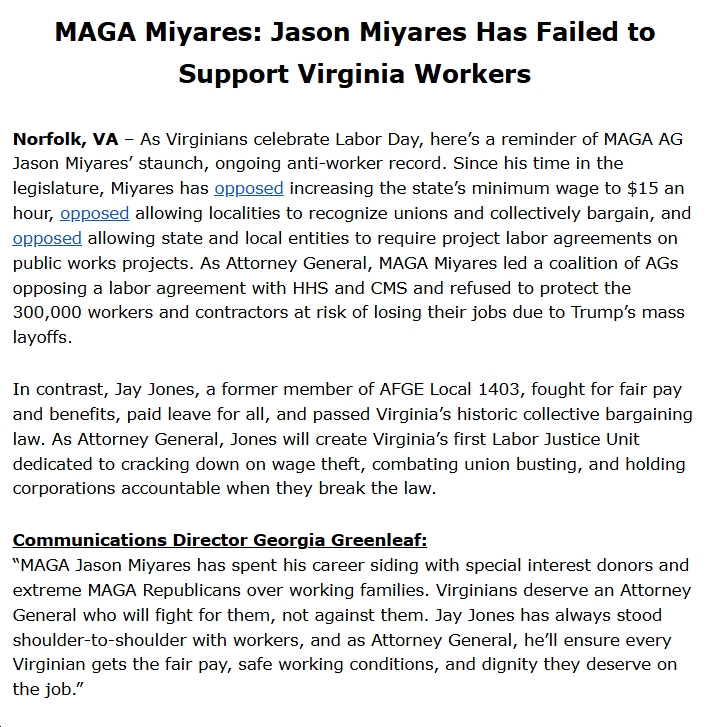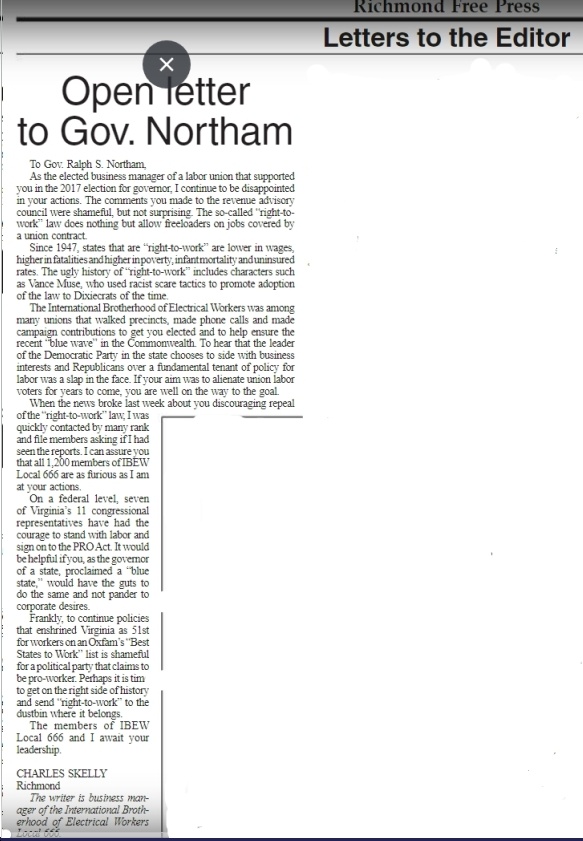Excellent stuff, as usual, from the Commonwealth Institute:
Virginia Charts A Path To A $15 Minimum Wage
The first increase in over 11 years will take effect in January 2021
During the 2020 session, the General Assembly adopted new legislation to increase Virginia’s minimum wage. Historically, Virginia has followed the federal minimum wage, which has been set at $7.25 since July 2009. This bill, which now awaits Gov. Northam’s signature, would gradually increase Virginia’s minimum wage to $12 by January 2023 and then outlines a path to $15 by 2026, contingent on the approval of the General Assembly.
This legislation is an overdue victory for working people in Virginia. At $7.25, our minimum wage is the lowest in the nation, when considering the typical cost of living in the commonwealth. People who are paid the minimum wage earn less per hour today than their counterparts did 50 years ago, after adjusting for inflation.
If signed into law, this legislation will benefit nearly 800,000 workers by 2023, while also helping to close the gender and racial pay gap in Virginia. The analysis below summarizes the strengths of the bill and identifies areas in which the General Assembly can improve the law in the future.
Highlights of The Minimum Wage Legislation
ith this legislation, Virginia would chart its own course, rather than follow the federal minimum wage. After reaching $9.50 in January 2021, the minimum wage will gradually increase to $12 by January 2023. After that, the General Assembly will review a study, which was commissioned in the bill and discussed more below, before voting to approve additional increases in 2025 and 2026, when Virginia would achieve a $15 minimum wage.
Between 1968 and 2020, the federal minimum wage has dramatically weakened compared to cost of living, typical wages for middle-income workers, and the productivity of workers. With this legislation, policymakers have helped to restore the minimum wage to a more reasonable level: by 2026, $15 per hour will be equivalent to $13.13 today.
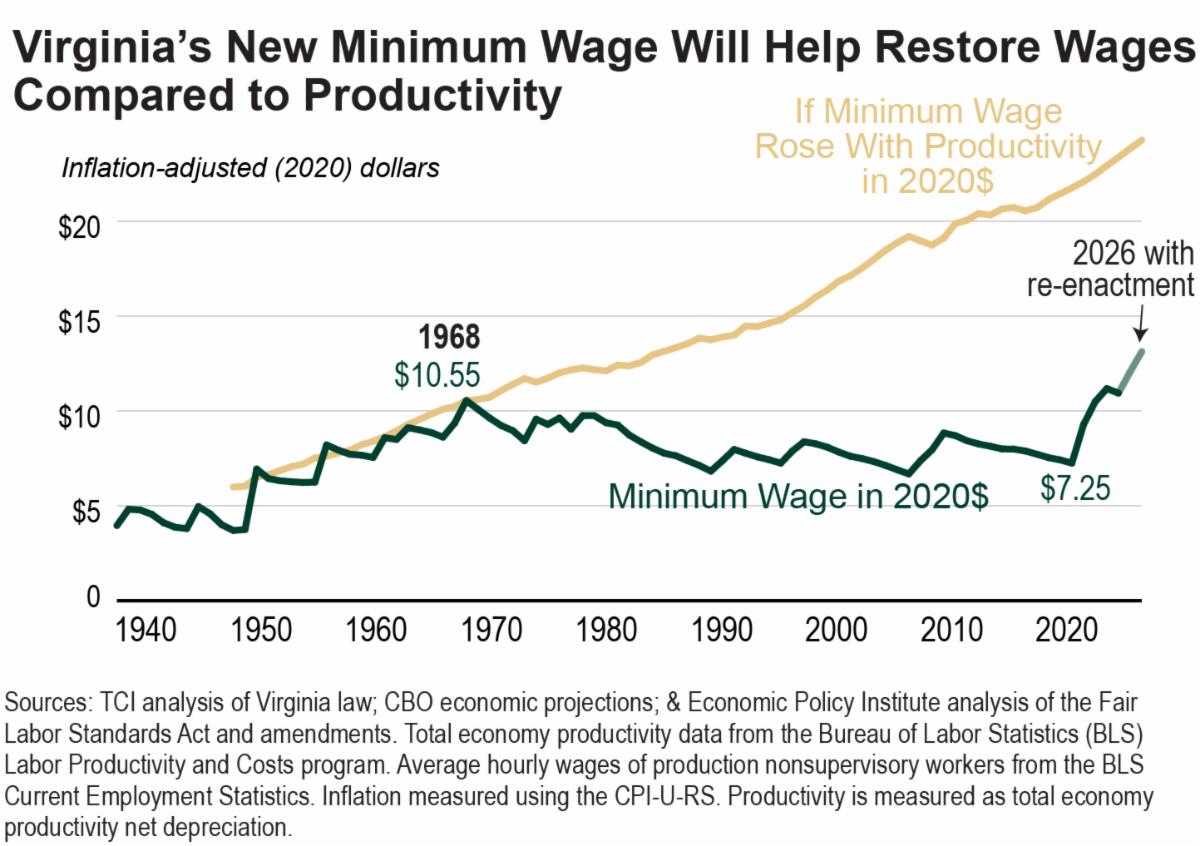
As the minimum wage increases, nearly 800,000 people across the commonwealth will benefit by 2023. That number will grow to more than 1.1 million people if Virginia completes the path to $15 by 2026. Women, in particular, will see their wages improve because they account for roughly 60% of all people who will benefit from a higher minimum wage. By 2026, a $15 wage would also boost 558,000 working people of color.
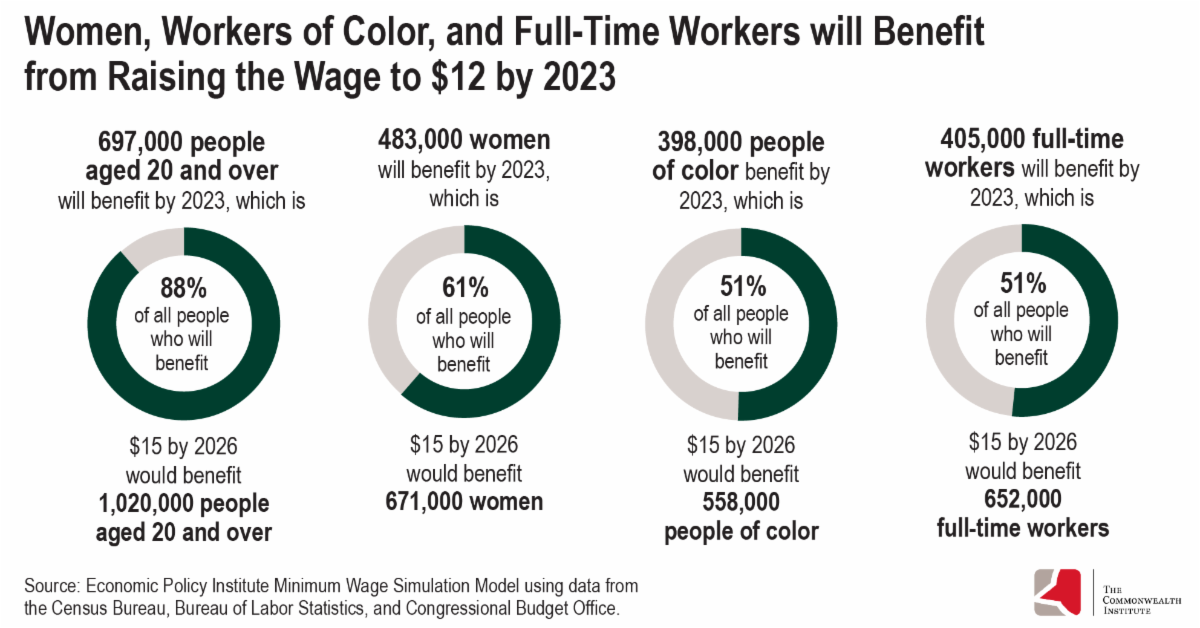
This legislation not only strengthens our minimum wage law, it also includes new categories of workers. More specifically, the bill ensures that some categories of workers will be guaranteed a minimum wage for the first time, including:
- Domestic service workers;
- Workers with disabilities (except for workers covered by a specific federal statute);
- “Piece workers,” i.e., people paid based on the amount of work done;
- Those working for an employer with fewer than four employees.
One final highlight is the absence of a “regional” minimum wage. A previous version of the Senate’s bill would have permitted employers to pay some minimum wage employees less than others based on location, even if they had identical job titles, experience, and education. If implemented as drafted, that approach would have fueled inequality in the commonwealth. Instead, the legislature commissioned a comprehensive new study, not only on the wisdom and feasibility of a regional minimum wage, but also the potential impacts on employers and workers, as well as the cost of living in Virginia. The study will be completed and submitted to the General Assembly and the governor by December 2023, after which time lawmakers will decide whether to approve the minimum wage increases in 2025 and 2026. In the meantime, all non-exempt workers who are paid the minimum wage in the commonwealth – from the Eastern Shore to Southwest Virginia – will be treated equally.
Future Opportunities To Strengthen Virginia’s Minimum Wage
For all that this minimum wage legislation achieves, the General Assembly should return to this issue in the future to make the law even stronger.
One area that is ripe for additional reform pertains to who is excluded from the minimum wage. Some workers, including those in agriculture, can still be paid a sub-minimum wage. Notably, agricultural workers who are classified under federal law as “temporary foreign workers” with H-2A visas earn significantly more per hour-currently $12.67-because wages are set according to federal law. This means U.S. workers employed in the agricultural industry can earn far less than people who do the same work with H-2A visas.
The legislation also created several new exclusions, including for au pairs, certain seasonal workers (e.g., amusement and recreational establishments) covered by a specific federal law, and participants in some training programs, during which time they can be paid 75% of the minimum wage for up to 90 days. The legislation, as passed, did not include enforcement and oversight provisions that were in a prior proposal, such as requiring employers to “make a good faith effort to continue to employ” the worker after the expiration of the training wage and prohibiting employers from using the training wage in a way that would negatively impact those currently employed.
Finally, lawmakers can continue to strengthen Virginia’s minimum wage by approving increases in 2025 and 2026. Doing so would ultimately benefit more than 1.1 million people and establish a phase-in schedule that is in line with other states. In 2020 alone, 24 states across the country will raise their minimum wage. Today, 29 states and Washington, D.C. already have a minimum wage that is higher than the federal standard.
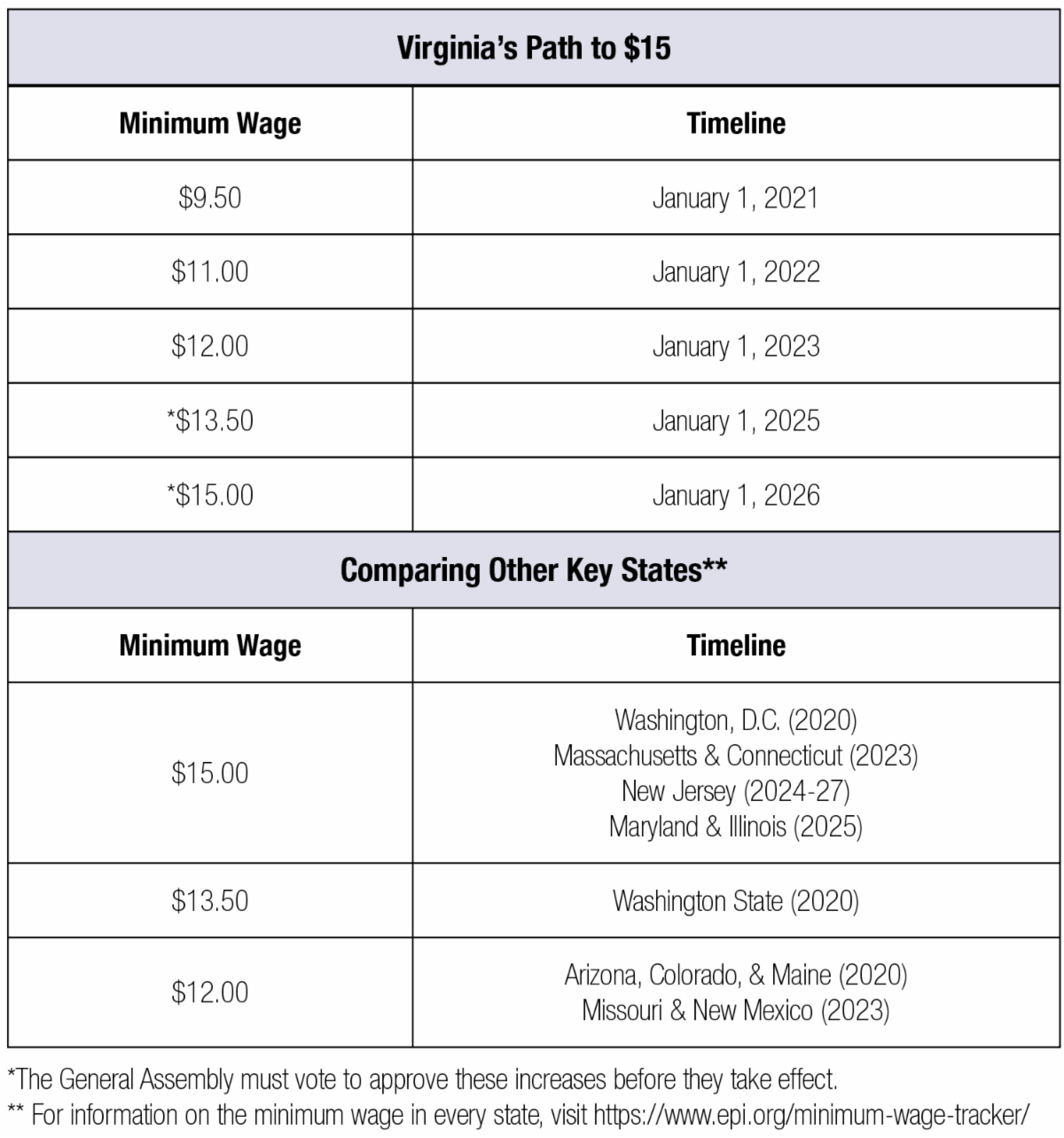
In the coming years, this minimum wage legislation will offer greater economic security and opportunity to working families all over the commonwealth. As Del. Jeion Ward explained in her floor remarks, “this legislation is for so many people who feel invisible in our economy but who are essential to our success.”
— Phil Hernandez, Senior Policy Fellow and Counsel
Print-friendly Version (pdf)
Learn more about The Commonwealth Institute at www.thecommonwealthinstitute.org

![[UPDATED: VA Senate Dems Pass $15/Hour Minimum Wage Bill] VA House Democrats Pass Top Priority, Paid Sick Leave](https://bluevirginia.us/wp-content/uploads/2026/02/housedemspaidsick.jpg)
